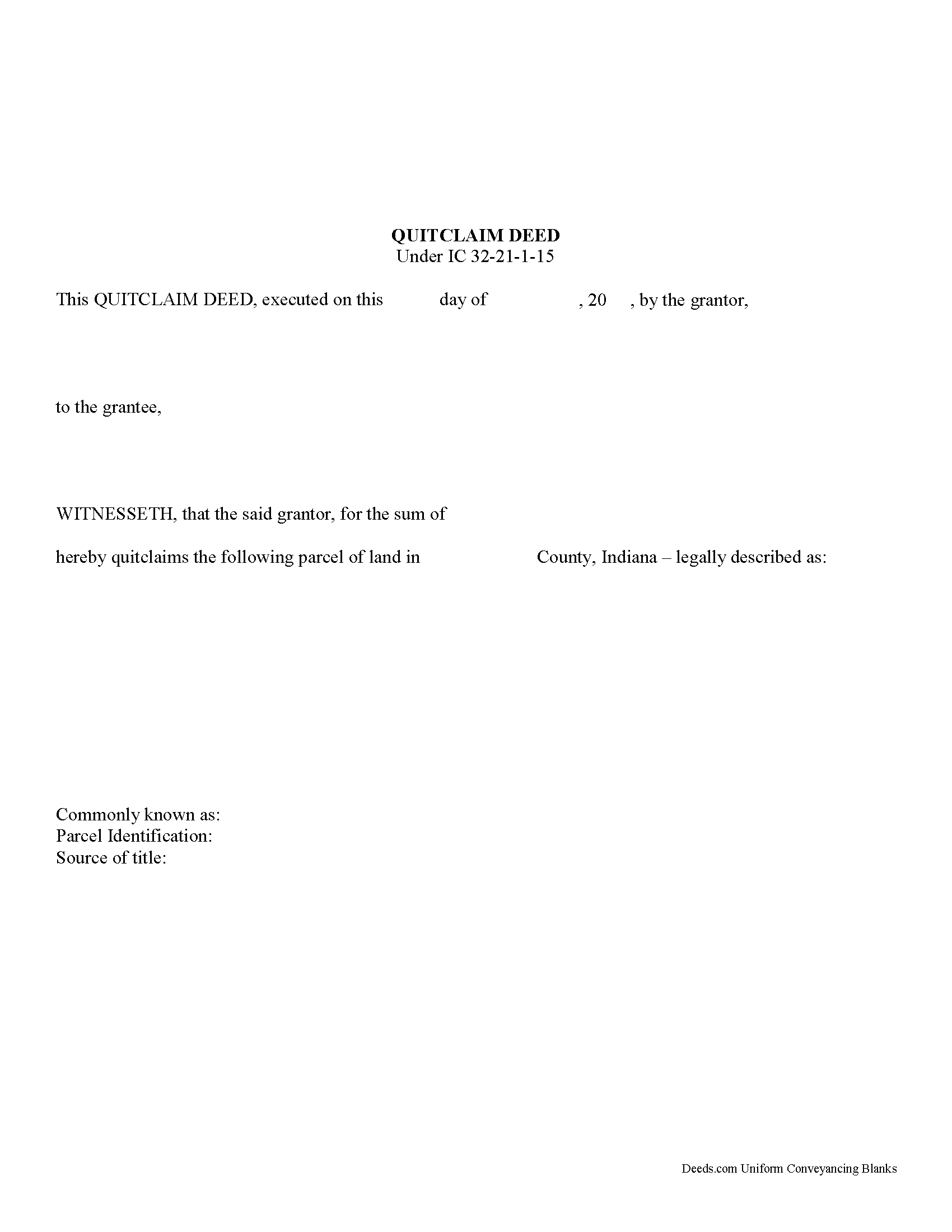Download Indiana Quitclaim Deed Legal Forms

Indiana Quitclaim Deed Overview

An Indiana quitclaim deed transfers any interest the grantor may have in a property without guaranteeing clear title. To ensure lawful execution and recording, the deed must meet specific state requirements.
Legal Framework
Under IC 32-17-2-2, a quitclaim deed transfers the grantor's interest in the property. The execution requirements are outlined in:
- IC 32-21-1
- IC 32-21-2-3
- IC 32-21-13
- IC 36-2-11-15
Written Document: The deed must be in writing and signed by the grantor or an authorized agent.
Names and Addresses: Include the names and addresses of all grantors and grantees. Ensure consistency in names throughout the document to avoid rejection by the recorder's office.
Consideration: State the type and amount of consideration (usually money).
Legal Description: Provide a complete legal description of the property.
Signatures: All signatures must be original and notarized, with the signer's name typed or printed below the signature.
Return Address: Include a return address (typically the grantee) for receiving the recorded deed and future tax bills.
Preparer Information: Include the preparer's name and social security number statement.
Formatting Standards
According to IC 36-2-11-14 and IC 36-2-11-16.5, the deed must:
Be endorsed by the county auditor before recordation.
Be printed on white paper (20 lb. minimum weight), no larger than legal size (8" x 14").
Be typed or computer-generated in permanent black ink, minimum 10-point font.
Have margins of at least ½ inch on all sides, except the first and last pages, which require 2-inch top and bottom margins.
Recording Process
Under IC 32-21-4-1, Indiana follows a "race-notice" recording statute. To record a quitclaim deed:
County Recording: The deed must be recorded in the county where the property is located.
Public Record Entry: Upon acceptance, the county recorder stamps the deed with the date and time of filing and enters it into the public record.
Constructive Notice: This public record serves as constructive notice to interested parties and preserves the chain of title.
Priority Ranking: The stamped date and time establish the deed's priority against other claims on the property. Recording promptly is crucial to secure the grantee's interest.
Importance of Timely Recording
Recording the quitclaim deed immediately after execution protects the grantee's interests. In a "race-notice" jurisdiction, the first party to record the deed has priority. For example, if the grantor sells the same property to two different parties, the party who records their deed first generally retains ownership. Therefore, prompt recording is essential to avoid disputes and ensure clear title.
Conclusion
To comply with Indiana law, follow these detailed requirements when preparing and recording a quitclaim deed. Proper execution and timely recording ensure a smooth transfer of property interests and protect all parties involved in the transaction.